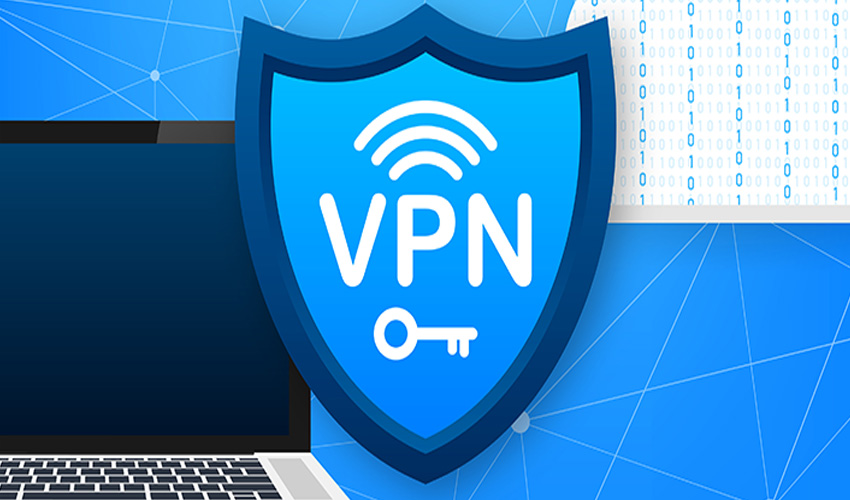


As the Pakistani government tightens its grip on internet access, the demand for Virtual Private Network (VPN) services has skyrocketed in the country. Recent events, such as the blocking of popular social media platforms like WhatsApp and Bluesky, have led to a 330% increase in VPN usage. However, this may soon come to an end as authorities have announced a new VPN policy which requires registration by November 30. While some argue for the necessity of VPNs for legitimate purposes, others have called for a complete ban due to concerns over potential misuse by terrorists.
Pakistan's Uprising Demand for VPNs: Government Tightens Internet Access
In recent months, Pakistan's internet landscape has witnessed a surge in the use of Virtual Private Networks (VPNs), as the government tightens its grip on online access. This surge has been fueled by the blocking of widely used social media platforms like WhatsApp and Bluesky, leading to a 330% spike in VPN usage according to Google Trends.
Background of Internet Censorship in Pakistan
Internet censorship in Pakistan has a long and complex history. The government has a history of blocking websites and content it deems offensive or a threat to national security. In recent years, the government has increased its efforts to control the flow of information online, citing concerns over terrorism and the spread of extremist content.
VPN Policy and Government Restrictions
In response to the rising use of VPNs, the Pakistani government has announced a new VPN policy. This policy requires all VPN providers to register with the Pakistan Telecommunication Authority (PTA) by November 30th, 2023. VPNs that fail to register will be blocked.
The government claims that this policy is necessary to prevent VPNs from being used for illegal activities, such as terrorism and money laundering. However, privacy advocates have raised concerns about the potential for abuse and the impact on legitimate VPN usage.
Top 5 FAQs
1. Why are VPNs used in Pakistan?
VPNs are used in Pakistan to bypass internet censorship by accessing blocked websites and content. They also provide anonymity and privacy by hiding the user's IP address, making it difficult to track their online activity.
2. Is it illegal to use a VPN in Pakistan?
Currently, it is not illegal to use a VPN in Pakistan. However, the new VPN policy requires all VPN providers to register with the PTA by November 30th, 2023. There is uncertainty about the legal implications for using unregistered VPNs after this date.
3. Will the government ban VPNs completely?
The Pakistani government has not announced a complete ban on VPNs, but there have been calls for it from some quarters. The government's position on the legality of VPNs may change in the future.
4. What are the concerns about VPN misuse?
Government officials have expressed concerns that VPNs can be used by terrorists and other criminals to hide their activities. However, it is important to note that VPNs can also be used for legitimate purposes, such as accessing region-restricted content or protecting privacy.
5. What are the consequences for unregistered VPNs?
Unregistered VPNs will be blocked in Pakistan after November 30th, 2023. This means that users will not be able to access these VPNs to bypass internet censorship or protect their privacy.

The Text With Jesus app, powered by OpenAI's ChatGPT, has gained popularity since its launch, despite skeptics calling it blasphemy. Users can engage in AI-generated conversations with famous Biblical figures like Jesus and Moses, receiving scripture-based advice on various topics. Creator Stéphane Peter shares that most users have come to the app out of curiosity and are embracing the unique experience.

With the demand for fast, secure, and reliable connectivity in the Industry 4.0 era, private 5G networks are emerging as a game changer. Leading this charge is telecom innovator Rahul Bangera, who has extensive experience in integrating industrial networks with core business systems. By making technology invisible and enabling real-time data flow, his solutions are improving efficiency, safety, and decision-making in manufacturing sites. Additionally, he has addressed workforce readiness and cybersecurity hurdles with comprehensive managed services. As the industry heads towards the convergence of secure connectivity, edge computing, and AI, the potential for self-optimizing, intelligent factories is endless.

In a major partnership, Google and Reliance have announced that they will provide Jio users with free access to Google's AI Pro plan, powered by the latest Gemini 2.5 Pro model. This offer, generally worth Rs 35,100, will give eligible users access to enhanced AI image and video generation capabilities, along with increased storage and productivity tools. Additionally, Google Cloud will serve as Reliance Intelligence's strategic AI infrastructure partner, empowering Indian companies to adopt Gemini Enterprise and build complex and capable AI applications domestically.

Google has teamed up with Reliance Intelligence to offer its top-tier AI Pro plan, featuring the latest Gemini 2.5 Pro model, to Jio Unlimited 5G subscribers for 18 months at no additional cost. The collaboration aims to expand access to advanced AI tools for millions of users in India, with an initial rollout to 18-25 year olds before expanding nationwide. Along with Gemini Pro, the plan will also provide higher limits for generating images and videos, expanded access to NotebookLM, and 2 TB of cloud storage. The move reflects a growing trend among telecom providers to bundle premium AI products into their mobile plans, following in the footsteps of Airtel and OpenAI.

Thousands of users worldwide are unable to access critical services such as Azure, Microsoft 365, Teams, Outlook, and the Microsoft Store due to widespread downtime across several of Microsoft's key platforms. The outage has also affected major corporate clients like Starbucks, Kroger, and Costco, highlighting the extent of the problem. While Microsoft has acknowledged the issue and is working on a solution, frustrated users have taken to social media to express their displeasure and even poke fun at the situation.

Elon Musk has once again stirred the tech world with the launch of Grokipedia, his version of Wikipedia, powered by AI. With its first iteration already live, Musk claims that Grokipedia 0.1 is superior to Wikipedia, and version 1.0 will be a whopping 10 times better. As this new platform takes on the task of compiling and updating information with the help of AI, we explore the key differences between Wikipedia and Grokipedia.

Gone are the days of standing in long queues to update your Aadhaar card. With the new rule, you can now make any changes or corrections to your Aadhaar information online, without having to visit an enrolment centre. This means that updating your name, address, date of birth, or mobile number will be faster, simpler, and more secure than ever before. Say goodbye to the hassle and hello to convenience with this game-changing update to the Aadhaar system!

Entrepreneur and inventor Elon Musk has launched a new online encyclopedia called Grokipedia, which he claims will provide a more balanced and unbiased view of controversial subjects compared to Wikipedia. Although some entries on the site appear identical to those on Wikipedia, many users have praised Grokipedia for its nuanced and detail-oriented approach. However, others remain skeptical and have pointed out that some pages on Grokipedia appear to have been lifted directly from Wikipedia without proper credit. Nonetheless, Musk has emphasized that his goal with Grokipedia is to provide "the truth, the whole truth, and nothing but the truth."

During a meeting with Indian Police Service probationers, President Droupadi Murmu emphasized the importance of technology in policing and the potential threat of "digital arrest". Murmu stated that India's economic growth relies on effective policing for maintaining law and order and attracting investment. She also highlighted the role of a future-ready police force, led by young officers, in shaping a technologically-advanced 'Viksit Bharat'. "Digital arrest" refers to a scam where fraudsters pose as law enforcement officials and use threats of arrest and other means to extort money from victims.

South African entrepreneur Elon Musk's social media platform X, formerly known as Twitter, has announced that it will no longer use the Twitter domain for two-factor authentication. This update primarily affects users who utilize hardware security keys or passkeys and they must re-enroll their credentials on X.com before November 10 to avoid being locked out of their accounts. This move reflects Musk's long-standing ambition to revitalize the X.com brand, which he founded in 1999 and later merged with Confinity to create PayPal.